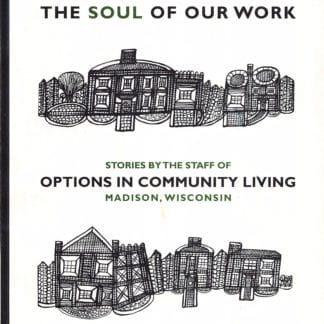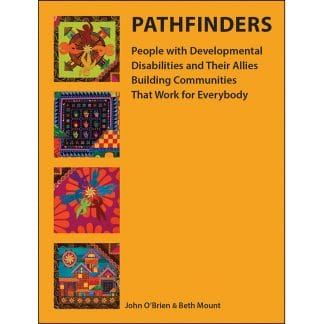SCHOOL
Someone asked a little boy, “What is Home?” He replied, “Home is a place that when you go there, they have to take you in.”
School should be more like home.
School is an important place of learning. It is, however, not the only or the most important place of learning. A school, at its best, builds on learning already acquired. School broadens and deepens it.
A school is essentially a place where children and young people gather together with teachers who guide them in their learning.
Schooling is the process of organizing schools. It is about class size, the number of grades, the hours of instruction, the provision of materials, etc. Schooling must not be confused with educating. Good schooling assists the learning process; it must not become an end in itself.
School has become a sacred and cherished place in all societies.
Schools can provide a good and complete education for each child. Large, well-equipped schools are not the norm in the world. Many schools are fortunate to have a building and some learning materials. A building is not a school. Learning materials are not an education. Teachers with or without resources will find a way to help people learn. Society should value its schools and provide, according to its means, the materials that will facilitate the role of the teacher.
Every child, able or disabled, can learn. Schools must be inclusive.
Parents entrust much of the education of their child to society through its schools. They trust that their child will be welcomed and will receive a good and complete education. They intend to be more than spectators in the schooling process. They will be involved; they will be informed; they will give advice. Their children, able and disabled, will receive an education.
What is Education?
Education is a precious gift we wish for our children. Education is clearly more than schooling, more than academic achievement and more than preparation for work. Education has two main components, Academic learning and Socialization. Each is important; both are achievable. We easily recognize academic achievement as the “job” of the school. Not all students will achieve academically at the same time, at the same level, or in the same way. However, each will achieve.
Socialization is less understood as the “job” of the school because we don’t understand socialization. Socialization is not learning how to get along at a party. It begins at birth and cannot be stopped. It cannot be separated from other functions. It occurs in the home, at school, everywhere. Willed or not, it is ongoing. It can be influenced; it can be directed; but it cannot be stopped. Proper socialization is important for every child. It is crucial for a child with a disability.
Socialization is a growing awareness and knowledge of self, an awareness of others that leads to appropriate interactions. Socialization is learned behavior – both simple and complex. Children in their early years mimic parents’ words, speech patterns and actions. They begin to understand rules and expectations. Because the do not always follow the rules, they experience consequences. As they grow older, they become more aware of the need for discipline and order in their lives. Values are developed through socialization. Generally, they reflect the values of the family. Behavior, which causes us to be accepted or rejected by others, can be taught. Parents and teachers, by word and example, help children obtain and maintain the good will and good opinion of others. Socialization must not be left to chance alone.
Each of us wishes to be well thought of and to be accepted by others. We have been socialized to be conscious of behaviors that attract, and those that repel. Most of these behaviors are simple and very practical, for example: good manners, proper hygiene, appropriate dress and age appropriate behavior. Pupils, including exceptional pupils, need to acquire these behaviors to be accepted. Most behaviors are learned by modeling others.
Parent of exceptional pupils are aware of the positive attitudes and stimulating environment provided by neighborhood schools. They want their children enrolled there. School attendance is mandatory for children, able and disabled alike. The right and duty to attend school does not guarantee acceptance. The presence of children with disabilities in the neighborhood school will transform that school. It will be a more peaceful school, where each will be accepted and honored for who they are, and not only for what they can do. The inability to achieve academically must not deprive a child with a disability from the opportunity for positive socialization.
Parents. What do you really want for your special child? Do you want a ‘normal’ or a ‘special normal’ child? Choose! One will destroy the other. Do you want regular teachers or special teachers? Do you want the same program as the other children, or special programs and timetables. If you want ”Special”, your child will grow, but not much. Your child will belong, but in a limited way. Your child will be “cared for”, but his/her growth will be stunted. You may want special because you think it is a promise. It isn’t. You have the same right as all parents to be involved, to be consulted, to request and even demand support for your child. Use that right! Enroll your special child with his/her brothers, sisters and friends in the neighborhood school.
Your decision will certainly change your child’s life chances and may even change the world.
Our Self Image is a Reflection of What Others Think of Us
If you see yourself as a happy, outgoing person; if you see yourself as caring, helpful and attractive; if you see yourself as competent and able, others and particularly significant others mirror and reinforce your positive self-perception.
If you see yourself as burdened, unattractive, of limited ability, unappreciated, unloved and unhappy, these negative self-perceptions are also mirrored and reinforced by your significant others.
Our self-image has a real effect on our learning and growth. It is a generalization, but only a slight one, to say that happy children learn and unhappy children don’t learn. Further, children who are perceived to be capable are, and those perceived to be incapable, also are (incapable).
Who are these significant others that have such an effect on our self-image. They are parents, spouses, brothers and sisters, caregivers, principals, teachers and other pupils and friends. Their influence goes beyond simply reflecting, to shaping our self-images.
It is safe to say that most families foster positive images for their members. Children with disabilities start at a disadvantage in self-image. Even before they are aware, their disability is labeled and seen as limiting. Disability labels are never positive.
Pre-school children, able and disabled, have a positive self-image and a positive view of their ability.
Pupils, teachers, principals and other school personnel who relate to children must be aware of their power to shape self-image. Parents and educators know that praise is more powerful than blame. Why then do we praise less than we blame. Parents and educators know that success is a more powerful than failure. Yet we often dilute the effects of success by diminishing or denying it. An outstanding report or test result is frequently greeted not by “well done,” but by “you could have done better”. Teachers are not always fully aware of the power their words have in forming self-image. Those who were told by a well-meaning music teacher to “just mouth, don’t sing”, frequently gave up on music.
Little children who see themselves as “smart”, and who believe that their mummies and daddies and teachers think they are smart, acquire skills and knowledge with ease. They are smart.
It is a comfort to know that almost 100% of early childhood and kindergarten (4 and 5 years of age) believe that they are smart and that their parents and teachers agree. Unfortunately the percentage of believers drops off as we go up the grades. It is possible that we could reach a grade level where more than 50% of the pupils would see themselves as not smart. If the image we have of ourselves is a reflection of what others think of us, whose negative image is being reflected to those who have learned to doubt their abilities. What are we doing in our multi-million dollar institutions that cause children, who begin certain of their ability, to become doubters.
Children in the early school years generally see themselves as loved and capable. Children with disabilities will share this if they are loved in the family, and included in their local school. There they will acquire learning and new life.
My Questions Your Answers
September marks the beginning of a new school year.
Most parents are quite content to send their child off to school day by day. For the most part, parents have little contact with the school and are happy if their children enjoy school and appear to be learning. They trust the Principal and teachers to keep their children safe and challenge them to learn and grow.
If concerns are expressed by the school concerning one of their children, parents generally, as they should, become actively involved. When the concerns have been addressed home school relations return to their state of acceptance, lack of concern, and minimal involvement. This is not from a lack of concern or interest. It is generally an indication of confidence in the school.
Does past experience justify this trust? Yes, for the most part. However, is this trust based on a knowledge of good practice in education? Is it based on a knowledge of the programs and practices in and the educational philosophy of the neighborhood school? Knowledge of both will increase trust and lead to greater and regular involvement with your school.
Read, think about, and answer in your own way the long list of Questions that follow. Don’t worry the answers will not be recorded or graded, nor will they count for your report card.
- Questions
(Early Childhood Education to Grade 8) - Are the school grounds attractive, well maintained, safe and attractive?
- Are the children supervised when they are in the school grounds?
- Is the school building, well constructed and esthetically pleasing?
- Is it welcoming, does it invite you to enter?
- Are the school grounds and school building accessible to those with disabilities?
- Is the interior of the school clean?
- Is there sufficient space to move about in comfort?
- Are the washrooms clean supervised and user friendly?
- Do the bulletin boards and corridor walls display student work? Is it changed regularly? Does it indicate the priorities of the school?
- Is music and laughter heard in the background?
- What would you like to see changed on the grounds and in the school building?
- Is the caretaker treated as a colleague? What are his/her priorities?
- What is the leadership style displayed by the Principal?
- Is he/she available and approachable to students, staff and parents?
- Does he/she enjoy being in charge?
- Does he/she share his/her authority?
- Is he/she firm when necessary?
- Is he/she respected by staff?
- Are the teachers confident in their abilities?
- Do they make provision for differences in each child?
- Do they insist that their pupils strive for excellence?
- How do they define excellence?
- Are their classrooms open to the pupils, parents and others?
- Do they encourage and welcome volunteers?
- Do they have fun?
- What is their first priority?
- Are there substantial programs in Music and Art?
- Are these valued equally with reading, maths and Science?
- Is there a Gym in the school?
- Is it used for more than Phy Ed instruction?
- Does the school allow involuntary competition?
- Does the community use the school facilities after school hours?
- Does your school have a parents’ council and a parent teacher association?
- What is their role?
- Are they effective?
- Do they spend more time raising money than raising issues?
- Who monitors the amount of homework assigned?
- Do you approve of homework below grade 7?
- Are some students retained (failed) in your school?
- Are some students skipped ahead (accelerated) in your school?
- Do you know the effects of retention?
- Are you happy with your son’s /daughter’s experience in your school?
- Do you affirm the Principal and Staff when you visit?
- Do you seek and build a partnership between home and school?
- What would you like to see changed in your school’s programmes?
It is not intended that the task of reading and answering the questions in your own mind be a great burden. It should be interesting and even fun. The exercise will certainly encourage you to engage in discussion with your children and even the school staff.
I have fairly strong opinions about the issues raised in the questions. I will share them with you if you wish. Send me an e-mail at [email protected] and I will reply.
If your school is a healthy, happy place that accepts and nurtures every child able and disabled alike; if it emphasizes the things of the soul, music, art, drama equally with the three R’s, you have a good school.
Your children need your involvement and expressed concerns and the schools deserve our support.



